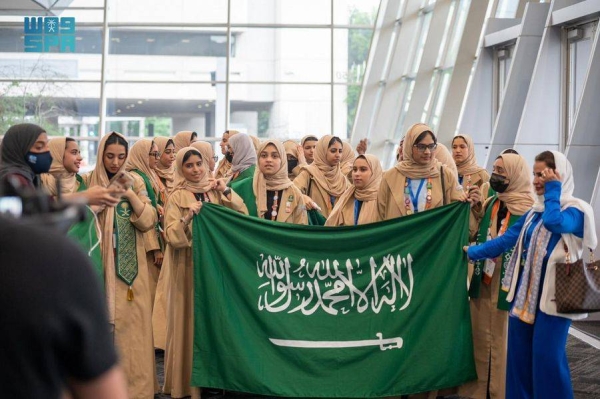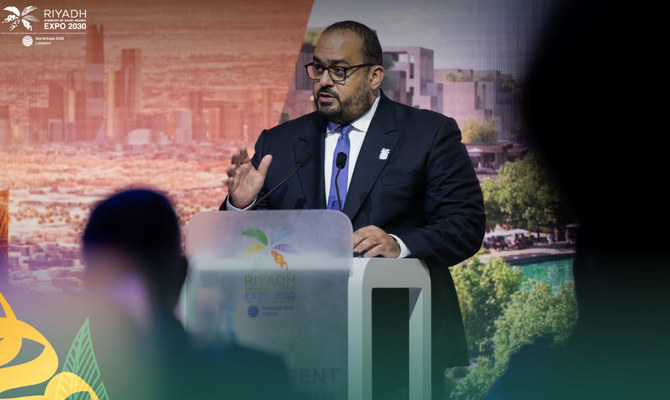
PARIS: Changes in women’s status may have come too late for some, but mothers in Saudi Arabia are thrilled that their daughters will benefit, says entrepreneur and philanthropist Princess Reema bint Bandar.
Princess Reema, who is deputy head of planning and development at the General Sport Authority, told Arab News: “Mothers say that even though they did not have the same chances, they are very glad that their children will.
“They may worry about them, but that’s a universal worry shared by any parent.”
At the same time, she said she was well aware that there was resistance to the reforms from some sections of the older generation.
“We held some forums with students in the US and they told us that they want to work and do things but their parents say no, and I have to admit we dropped the ball on that aspect. So then we had to sit and work out how to persuade and reassure the parent generation.”
The princess said young Saudis were now returning to their homeland after studying abroad.
“Parents worry about their children going abroad to study and staying there because life was easier. But nowadays they are coming back home because there are opportunities for them,” said the princess, who herself returned to Riyadh after graduating from George Washington University with a bachelor’s degree in museum studies.
One of the princess’s roles in the General Sport Authority is to work on long-term job creation and develop a career structure in sport.
“If you’re an athlete, then obviously your career is short. We are dealing with sport as an industry. We are able to show that sport can and does produce long-term jobs with a career structure and an income trajectory,” she said.
Princess Reema, a successful retail entrepreneur whose father was a former Saudi ambassador to the US, was one of the business leaders addressing the Saudi-French Business Forum in Paris on Tuesday. She has launched her own handbag brand and when she was CEO of Alfa International, which operates luxury store Harvey Nichols in Riyadh, she bought more women into the workforce and provided child care services.
At the business forum she spoke passionately about the untapped potential of women in Saudi Arabia.
“This is not a dream. Women’s inclusion is not happening because we want to get Americans to say Saudi Arabia is a great place. It is happening because it is our right,” she said.
Addressing a room packed with the CEOs of leading French companies; she continued: “What we need to learn from you is how to integrate sports into the economy, as you have done.”
Her mission, both abroad and at home, was not necessarily to change people’s views of women or of Saudis, she said.
“We are not asking you to change an opinion of us that you already hold, but to consider a fact: We are the future.”
The princess evoked the French tradition of the salon, “with scientists, artists and philosophers talking to each other.”
She stressed that the changes encompassed in Vision 2030 constituted evolution, not revolution.
“You had to have a revolution here,” she said, referring to the 1789 revolt that resulted in the removal of the monarchy in France. “We don’t have to have one because we have learned from the past. Freedom of speech, freedom of expression — without these you cannot have a creative society. It’s not about being more American or more Chinese or Russian. It’s about being the best Saudis we can be.”
The princess said young Saudis were now returning to their homeland after studying abroad.
“Parents worry about their children going abroad to study and staying there because life was easier. But nowadays they are coming back home because there are opportunities for them,” said the princess, who herself returned to Riyadh after graduating from George Washington University with a bachelor’s degree in museum studies.












